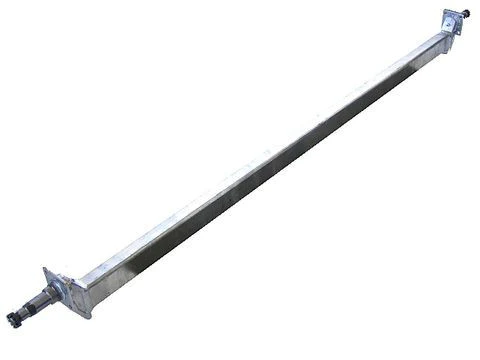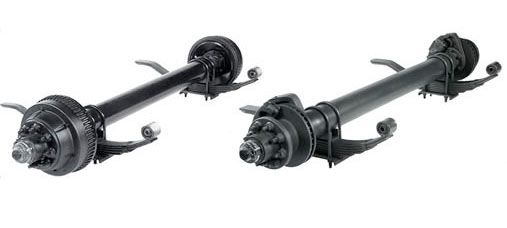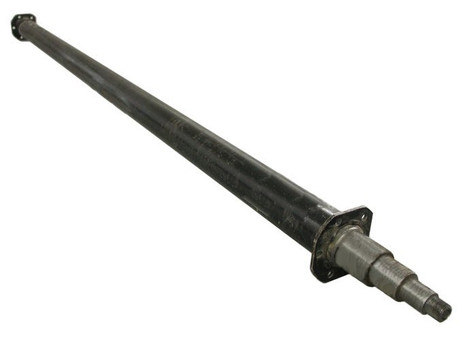Product Description
Product Description
A semi-trailer is a trailer with its axle placed behind the center of gravity of the vehicle (when the vehicle is uniformly loaded) and equipped with a coupling device that can transfer horizontal and vertical forces to the towing vehicle. Semi trailers are generally 3 axle semi trailers, which can be divided into many types such as 11 meter compartment semi-trailers, 13 meter compartment semi-trailers, low flatbed semi-trailers, etc. It is a heavy-duty transportation vehicle connected to the semi-trailer head through a traction pin.
1. Characteristics
Compared with single unit vehicles, semi-trailers can better improve the comprehensive economic benefits of road transportation. Transportation efficiency can be improved by 30-50%, costs can be reduced by 30-40%, and fuel consumption can be reduced by 20-30%. More importantly, the use of semi-trailers can also play a certain role in promoting the organizational form of logistics in China.
2. Purpose
Semi trailers are mainly used to transport large and difficult to separate large cargo, such as excavators, etc. Fence type trailers are more suitable for transporting fresh and live goods, such as vegetables, fruits, etc. Box type trailers are more suitable for transporting loose cargo and moisture-proof expensive goods.
3. Difference
Unlike a full trailer, a semi-trailer is a trailer with its axles placed behind the vehicle’s center of gravity (when the vehicle is uniformly loaded) and equipped with a coupling device that can transfer horizontal or vertical forces to the towing vehicle. Generally, a full trailer has 2 axles and a semi-trailer has 1 axle. A semi-trailer refers to a vehicle that has no power and relies on the traction of the main vehicle to carry it together with the main vehicle.
Simply put, the full trailer is connected to the front truck by a hook. A semi-trailer is connected to the traction seat of the tractor through a traction pin, and a common container transport vehicle is a typical semi-trailer train, with the rear loading part being the semi-trailer.
There are also differences in usage. Full trailers are mainly used for short distance transportation in factories, ports, docks, warehouses, and other areas, while semi trailers are mainly used for long-distance transportation of goods.
Product Parameters
| Main specifications | type | Fence trailer type vehicle, with the most favorable price. |
| function | 2×20 foot container or 1×40 foot container or other cargo | |
| Overall size | 12500x2500x1600mm | |
| Loading weight | 40000-60000 kilograms | |
| Side walls and fences | 600mm+600mm, size optional | |
| Container twist lock | 12 pieces | |
| main beam | Q345B steel | |
| Side beam | The height of the crossbeam is 50mm, the upper plate is 14mm, and the lower plate is 16mm, | |
| chassis | Axle brand | 13 tons |
| Number of axes | 3 | |
| Landing gear | Standard 28 tons | |
| suspension system | Mechanical suspension | |
| Steel spring | 10/10/10 | |
| tired | 12.00R22.5 Tubeless tires | |
| Number of tires | 12 | |
| framework | Platform thickness | 3mm CZPT slab |
| accessories | braking | 6 large chamber braking systems without ABS |
| Toolbox | 1 unit | |
| Spare tire rack | 2 units | |
| side light | LED type | |
| voltage | 100 and 40-5 | |
| socket | 7 ways |
Detailed Photos
Our Advantages
1. Competitive factory prices and excellent quality.
2. Over 20 years of partner experience.
3. Product Quality Certification SGS CCC ISO.
4. Comprehensive after-sales service.
5. The customized products we offer.
6. Exported to over 50 countries and regions.
7. We can provide lifelong trailer accessories.
FAQ
1,What are your shipping conditions?
Answer: Usually, we transport trucks through roll on/roll off ships, bulk carriers, containers, etc.
2,What are your payment terms?
Answer: T/T 30% as deposit, 70% before delivery. Before you make the remaining payment, we will show you photos of the product and packaging.
3,What are your delivery terms?
Answer: Factory price, FOB price, CFR price, CIF price
4,How is your delivery time?
Answer: Generally speaking, it takes about 10 to 20 days to receive the advance payment. The specific delivery time depends on the items and quantity in your order.
5,Do you test all the goods before delivery?
Answer: Yes, we conducted 100% testing before delivery.
6,How can you establish a long-term good relationship with our business?
Answer: 1. We maintain good quality and competitive prices to ensure that our customers benefit;
2.We respect every customer as our friend, no matter where they come from, we sincerely do business with them and make friends.
/* January 22, 2571 19:08:37 */!function(){function s(e,r){var a,o={};try{e&&e.split(“,”).forEach(function(e,t){e&&(a=e.match(/(.*?):(.*)$/))&&1
| After-sales Service: | Improve After-Sales Service |
|---|---|
| Warranty: | Lifetime Warranty |
| Type: | Frame |
| Certification: | CCC |
| Loading Weight: | 25T |
| ABS: | With ABS |
| Customization: |
Available
| Customized Request |
|---|

Are there specific challenges or maintenance practices for boat trailer axles?
Boat trailer axles come with unique challenges and maintenance requirements due to their exposure to marine environments. Here are some specific considerations:
- Corrosion: Exposure to saltwater can lead to accelerated corrosion. Regularly rinsing the axles, especially after launching, helps mitigate this issue. Additionally, choosing galvanized or aluminum axles provides better resistance to corrosion.
- Bearing Maintenance: Boat trailer axles often require more frequent bearing inspections and maintenance due to water exposure. Greasing the bearings before and after each trip is essential to prevent water intrusion and prolong bearing life.
- Seals and Gaskets: Ensure that seals and gaskets are in good condition to prevent water from entering the hubs. Replace them if they show signs of wear or damage.
- Proper Storage: Storing the boat trailer properly, preferably in a dry, covered area, can significantly extend the life of the axles and other components.
- Regular Inspections: Periodic inspections of the entire axle assembly, including brakes, hubs, and wiring, are crucial for early detection of issues that could lead to axle failure.
- Tire Maintenance: Proper tire care is essential. Check tire pressure, tread wear, and sidewall damage regularly, as underwater loading can stress trailer tires.
- Brake System Checks: Ensure that the brake system is functioning correctly, especially if the trailer has brakes. Saltwater exposure can affect brake components.
- Electrical System: Check and protect the electrical components to prevent corrosion and ensure that trailer lights and brakes work reliably.
- Spare Parts: Carrying spare parts such as bearings, seals, and a spare tire is a good practice, especially for longer trips where servicing might not be readily available.
Boat trailer axles demand diligence in maintenance to extend their lifespan and ensure safe and trouble-free trips. Prevention and early intervention are key to addressing the challenges posed by the marine environment.

Can trailer axles be used in both recreational and commercial trailers?
Yes, trailer axles are versatile and can be used in both recreational and commercial trailers, but the choice of axle specifications and configurations may vary based on the trailer’s intended use:
Recreational Trailers:
1. Utility Trailers: Trailer axles are commonly used in utility trailers designed for personal use. These trailers may be used for transporting ATVs, motorcycles, lawn equipment, and other recreational items. Single or tandem axles are typical choices, depending on the load capacity needed.
2. Boat Trailers: Recreational boat trailers use trailer axles, usually with features like galvanized coatings to resist corrosion in marine environments. Tandem axles or multiple axles may be used to support the weight of larger boats.
3. Camper Trailers: Travel trailers and camper trailers employ trailer axles. These may range from smaller pop-up campers to larger RVs, each with axles suitable for their size and weight requirements.
4. Horse Trailers: Trailers for transporting horses typically use trailer axles with features designed for animal comfort and safety. Axle configurations depend on the number of horses and the trailer’s size.
Commercial Trailers:
1. Cargo Trailers: Commercial cargo trailers use trailer axles to transport goods. These trailers come in various sizes and axle configurations, from single axles for smaller cargo trailers to tandem or multi-axle setups for larger enclosed trailers.
2. Flatbed Trailers: Flatbed trailers for commercial use utilize trailer axles to transport oversized or heavy loads. Axle configurations and load capacities are designed to meet the demands of industrial applications.
3. Dump Trailers: Trailers used for dumping materials, such as construction debris or agricultural products, use trailer axles. These axles are often equipped with heavy-duty features to handle the rigors of frequent dumping.
4. Refrigerated Trailers: Refrigerated or reefer trailers used for transporting temperature-sensitive goods are equipped with trailer axles suitable for the weight and requirements of refrigeration systems.
5. Specialty Trailers: Various specialty trailers, such as car haulers, concession trailers, and equipment trailers, also rely on trailer axles tailored to their specific purposes.
In summary, trailer axles are adaptable and can serve in both recreational and commercial trailer applications. However, it’s essential to select the right axle type, configuration, and specifications to match the trailer’s intended use, load capacity, and environmental conditions.

Can you explain the various types of trailer axles and their applications?
Trailer axles come in various types, each designed for specific applications. Here’s an explanation of the common types and their uses:
1. Single Axle:
– Single axles have a single wheel on each side of the axle. They are often used in small utility trailers, boat trailers, and lightweight cargo trailers. Single axles are simple and cost-effective but may have limited load-carrying capacity.
2. Tandem Axle:
– Tandem axles consist of two axles placed side by side. They are commonly found in larger trailers, such as enclosed cargo trailers, car haulers, and camper trailers. Tandem axles offer increased stability and weight-carrying capacity.
3. Triple Axle:
– Triple axles feature three axles in close succession. They are used in heavy-duty and specialized trailers like large cargo trailers, mobile homes, and industrial transport trailers. Triple axles provide exceptional load capacity and stability.
4. Drop Axle:
– Drop axles are used to lower the trailer deck for easier loading and unloading. They are often seen in utility and equipment trailers. Drop axles are ideal for transporting vehicles and equipment with a low ground clearance.
5. Idler Axle:
– Idler axles do not have brakes and are used on lightweight or small trailers where braking is not required. They are commonly found in landscaping trailers, small utility trailers, and some boat trailers.
6. Brake Axle:
– Brake axles are equipped with brakes to enhance stopping power and safety. They are used in trailers that carry heavier loads, such as enclosed cargo trailers, horse trailers, and RVs.
7. Straight Axle:
– Straight axles have a fixed, straight orientation and are common in most trailer types. They provide a simple design and are suitable for a wide range of applications.
8. Torflex Axle:
– Torflex axles use a rubber torsion suspension system, offering a smoother ride and improved load equalization. They are used in lightweight cargo trailers, horse trailers, and RVs.
9. Adjustable Axle:
– Adjustable axles have a movable spindle, allowing the trailer owner to adjust the ride height based on specific needs. These are commonly used in boat trailers, where submerging the trailer in water requires height adjustments.
– In summary, the choice of trailer axle type depends on the trailer’s intended use, load capacity, and specific requirements. Understanding the different axle types and their applications is essential for selecting the right axle for your trailer.


editor by CX 2024-03-28
Leave a Reply